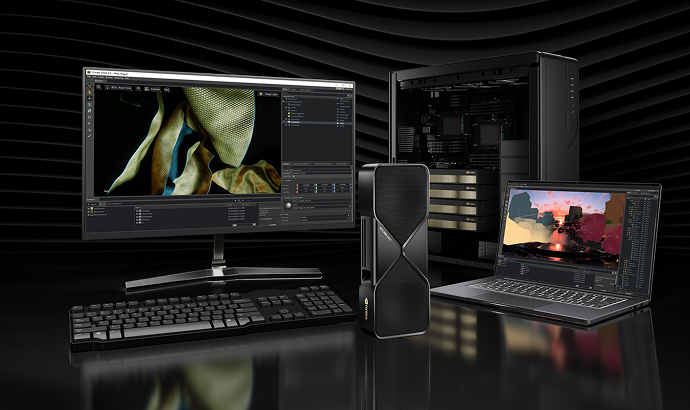

Writing About AI
Uvation
Reen Singh is an engineer and a technologist with a diverse background spanning software, hardware, aerospace, defense, and cybersecurity. As CTO at Uvation, he leverages his extensive experience to lead the company’s technological innovation and development.

Dell’s PowerEdge Server is a line of hardware introduced in the mid-1990s that has evolved over three decades from a simple computing machine into a flexible hardware solution designed to meet the computational requirements of modern businesses. This robust infrastructure is critical because artificial intelligence (AI) demands require processing vast volumes of data swiftly and securely. A PowerEdge Server provides the foundational hardware necessary for efficient computation, helping organizations harness the full potential of AI by supporting complex machine learning, deep learning, and generative AI applications. Deploying a PowerEdge Server can be the difference between sluggish analytics and generating real-time insights.
AI-powered applications require exceptional computational capabilities, which a PowerEdge Server addresses through processing power delivered by multi-core CPUs and GPUs, enabling the handling of massive datasets. Many of the latest models are equipped with NVIDIA GPUs, combining high processing speed with low power consumption. The servers also offer flexibility, allowing configuration with specific processing power, memory, storage, and networking options, and supporting diverse IT ecosystems with operating systems like Linux, Windows Server, and VMware. Furthermore, the system is designed for scalability, meaning it can be easily scaled up or down by adding more nodes or upgrading internal components to meet evolving AI project needs straightforwardly and cost-effectively.
Reliability is built into the PowerEdge Server through support for RAID storage technology, where data is stored across multiple hard drives, allowing the server to continue operating even if one drive fails, thereby minimizing downtime. To further enhance availability, several components in a PowerEdge Server are hot-swappable, allowing them to be replaced without requiring the server to shut down, which reduces the risk of service disruption or data loss. For management, Dell provides the OpenManage software, a web-based console that simplifies the administration of each server, making configuration, software updating, and performance monitoring seamless and efficient. Additionally, a PowerEdge Server includes built-in robust security features such as intrusion detection, vulnerability scanning, and Secure Boot to safeguard sensitive data against unauthorized access.
Yes, Dell offers specialized models, particularly the PowerEdge XE series, which are optimized for AI-ML and High-Performance Computing (HPC) tasks. This series includes highly specialized models such as the PowerEdge XE9680, which is designed for applications like large language models, recommendation engines, and genome sequencing. Other dedicated models include the PowerEdge XE9640, which focuses on HPC tasks, data analytics, and deep learning training, and the PowerEdge XE8640, which targets AI training, inferencing, and complex simulations. For versatile workload support, the PowerEdge R760xa is available, supporting AI-ML training, inferencing, and virtualization. When choosing a server for an AI project, factors like model complexity, dataset size, required inference speeds, and alignment with frameworks like TensorFlow or PyTorch must be evaluated.
To ensure your PowerEdge Server works optimally, several best practices should be followed, including utilizing power management tools to balance energy consumption and regularly monitoring server health. It is crucial to keep the firmware updated to ensure stability and to implement RAID for effective data protection. Users should also prioritize security settings and may consider consolidating workloads onto a single, powerful PowerEdge Server to simplify management and reduce costs. The inherent reliability of the PowerEdge Server, resulting from its use of durable, high-quality components and energy-efficient designs, helps minimize hardware failure, which contributes to a reduced total cost of ownership over time. For projects requiring custom configurations, AI experts can assist in choosing and configuring the right PowerEdge Server to meet specific workload requirements quickly and cost-efficiently.
We are writing frequenly. Don’t miss that.

Unregistered User
It seems you are not registered on this platform. Sign up in order to submit a comment.
Sign up now